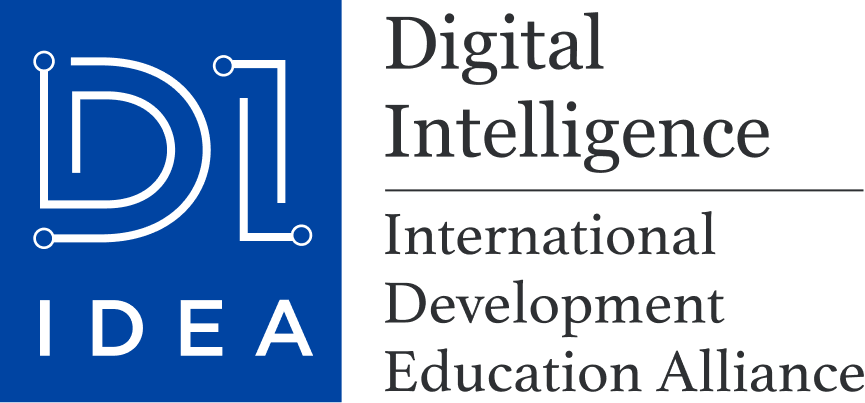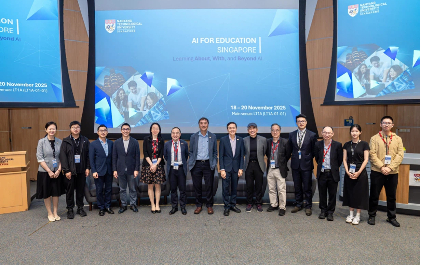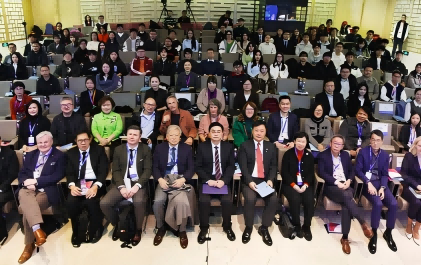From April 22 to 26, the 5th UM-PKU Institute for Teaching Innovation and Student Success was successfully held online. This year’s symposium, themed “Teaching Innovation and Student Success,” was jointly organized by the Digital Intelligence International Development Education Alliance (DI-IDEA), the Office of International Relations at Peking University (PKU), the Center for Excellent Teaching and Learning (CETL) at PKU, and the University of Michigan’s Center for Research on Learning and Teaching (CRLT). Approximately 130 faculty members from within and beyond PKU participated in the event.
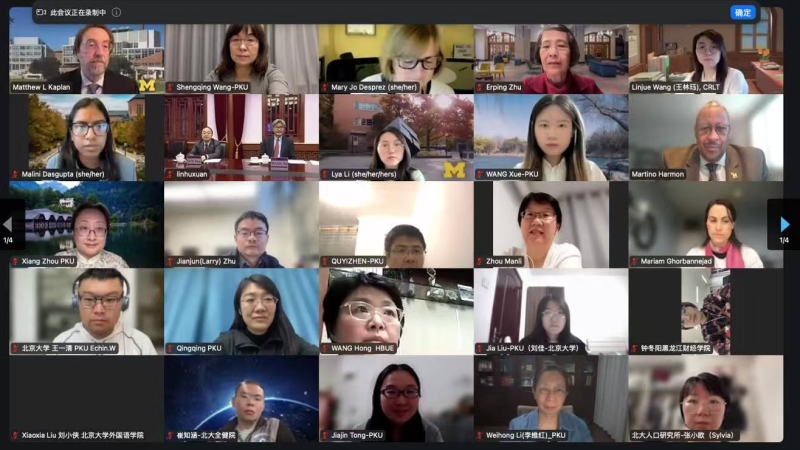
Group Photo of the Symposium
On the evening of April 22, Martino Harmon, Vice President for Student Life at the University of Michigan; Wang Bo, Vice President and Provost of PKU; Sun Hua, Director of the Provost’s Office and Director of CETL of PKU; and Zhou Manli, Deputy Director of the Office of International Relations, attended the opening ceremony and delivered remarks. The ceremony was hosted by Matthew Kaplan, Director of CRLT.
Martino Harmon emphasized the importance of interdisciplinary and intercultural collaboration in today’s uncertain global context. He highlighted the shared goal of both universities to innovate teaching practices and enhance student well-being, calling for greater recognition of the key role faculty play in supporting students and the importance of providing robust support systems for educators.

Remarks by Martino Harmon
Wang Bo praised the longstanding and fruitful collaboration between PKU and the University of Michigan in education and teaching. He stressed that PKU places student well-being and holistic development at the heart of its educational mission, integrating mental health education deeply into teaching strategies and striving to foster a safe and inclusive learning environment. Regarding the transformative impact of generative AI on education, he called for a balanced approach between technological application and humanistic care, using innovative tools to support personalized student development.
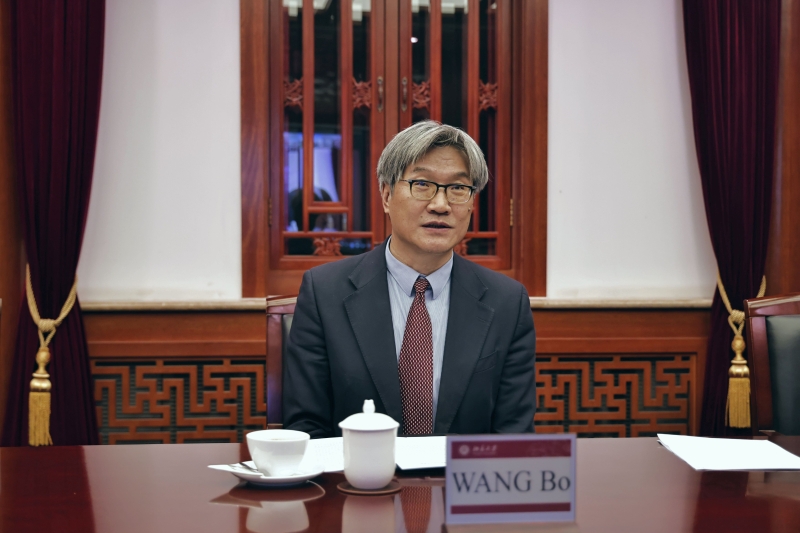
Remarks by Wang Bo
Sun Hua elaborated on AI-driven educational innovation practices at PKU under the DI-IDEA framework, especially highlighting the "2nd Global Digital Intelligence Education Innovation Competition" launched this year. He noted that the competition provides a platform for students and faculty to enhance their AI literacy and practical capabilities, and is a vital initiative to support student development in the AI era.
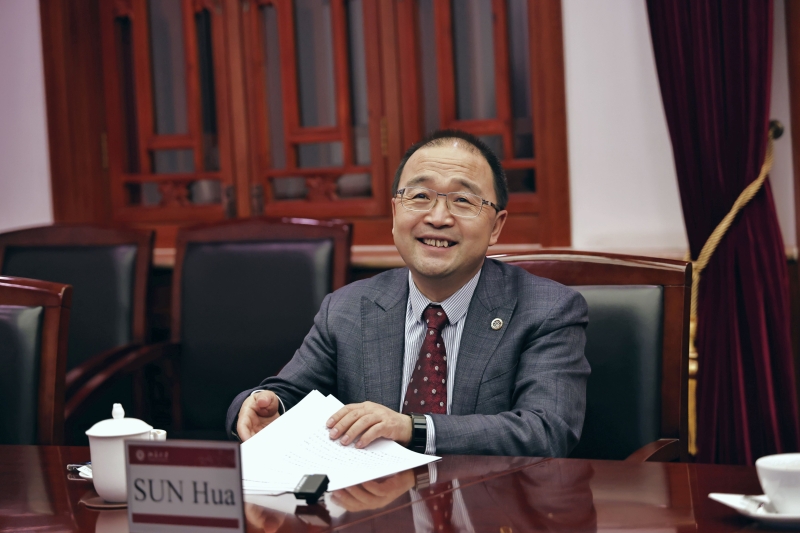
Remarks by Sun Hua
Zhou Manli expressed heartfelt gratitude to the University of Michigan’s leadership and the organizing teams from both sides. She highly commended the achievements of the past four symposia and extended best wishes for the success of this year's event.
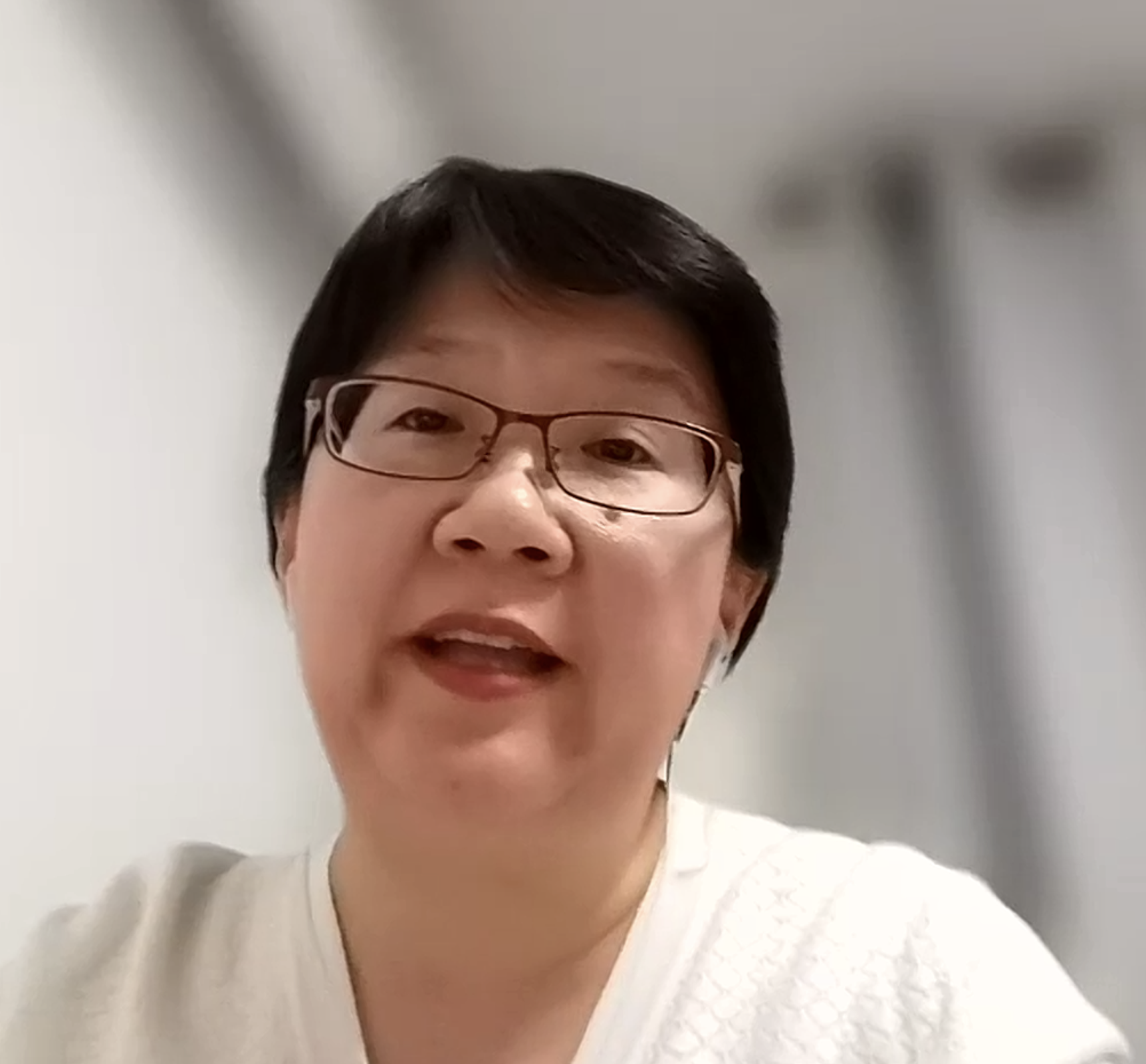
Remarks by Zhou Manli
This year’s symposium featured a diverse format including keynote talks, breakout discussions, and Q&A sessions. It focused on four main themes: “Overview of Student Success and Well-Being,” “Innovative Tools to Promote Student Success,” “Adapting Your Classroom Approach to Address Current Mental Health Needs,” and “Possibilities and Challenges of Emerging Technology.”
During the opening day’s keynote session, Mary Jo Desprez, Director of Wolverine Wellness at the University of Michigan, delivered a talk titled “Promoting Student Mental Health and Well-being.” She proposed that a health-promoting campus should encompass comprehensive care strategies, a culture of empathy, and a system of continuous support. Matthew Kaplan presented CRLT’s three-tiered support model for student wellness: micro-level personalized faculty consultations, meso-level interdisciplinary programs, and macro-level university-wide development strategies.
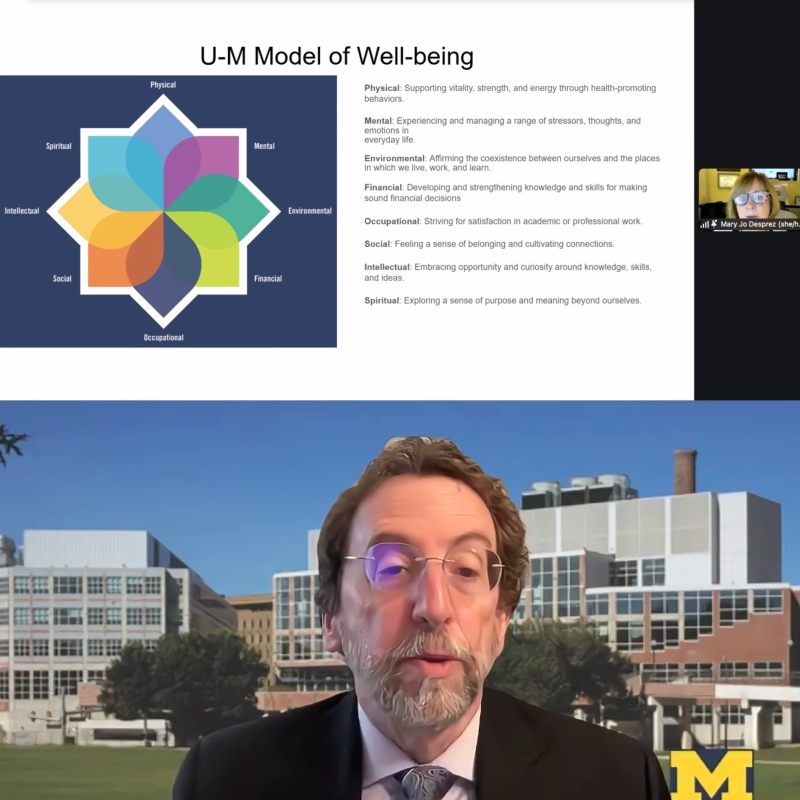
April 22 Keynote Presentations
On the evening of April 23, Professor Gavin LaRose from the University of Michigan’s Department of Mathematics shared inclusive teaching and mastery-based assessment practices in calculus courses. Cait Hayward, Director of Research & Analytics at the Center for Academic Innovation, and Professor Perry Samson from the Department of Climate and Space Sciences and Engineering, showcased two intelligent learning tools: ECoach and LearningClues. ECoach enhances academic performance through personalized features like reminders, grade calculations, and behavioral analysis. LearningClues, an adaptive teaching assistant system, offers intelligent Q&A, practice generation, and instructional suggestions based on course knowledge bases.

April 23 Keynote Speakers
On April 24, a panel discussion on “Adapting Your Classroom Approach to Address Current Mental Health Needs” was held. Professors Eric Bell (Astronomy), Meg Duffy (Ecology and Evolutionary Biology), Ezra Keshet (Linguistics), and Elizabeth Levesque (Associate Director of CRLT’s Foundational Course Initiative) explored topics such as balancing structure and flexibility in course design, managing changes in syllabi, identifying and supporting students in need, and simple yet effective ways for instructors to promote student mental health.
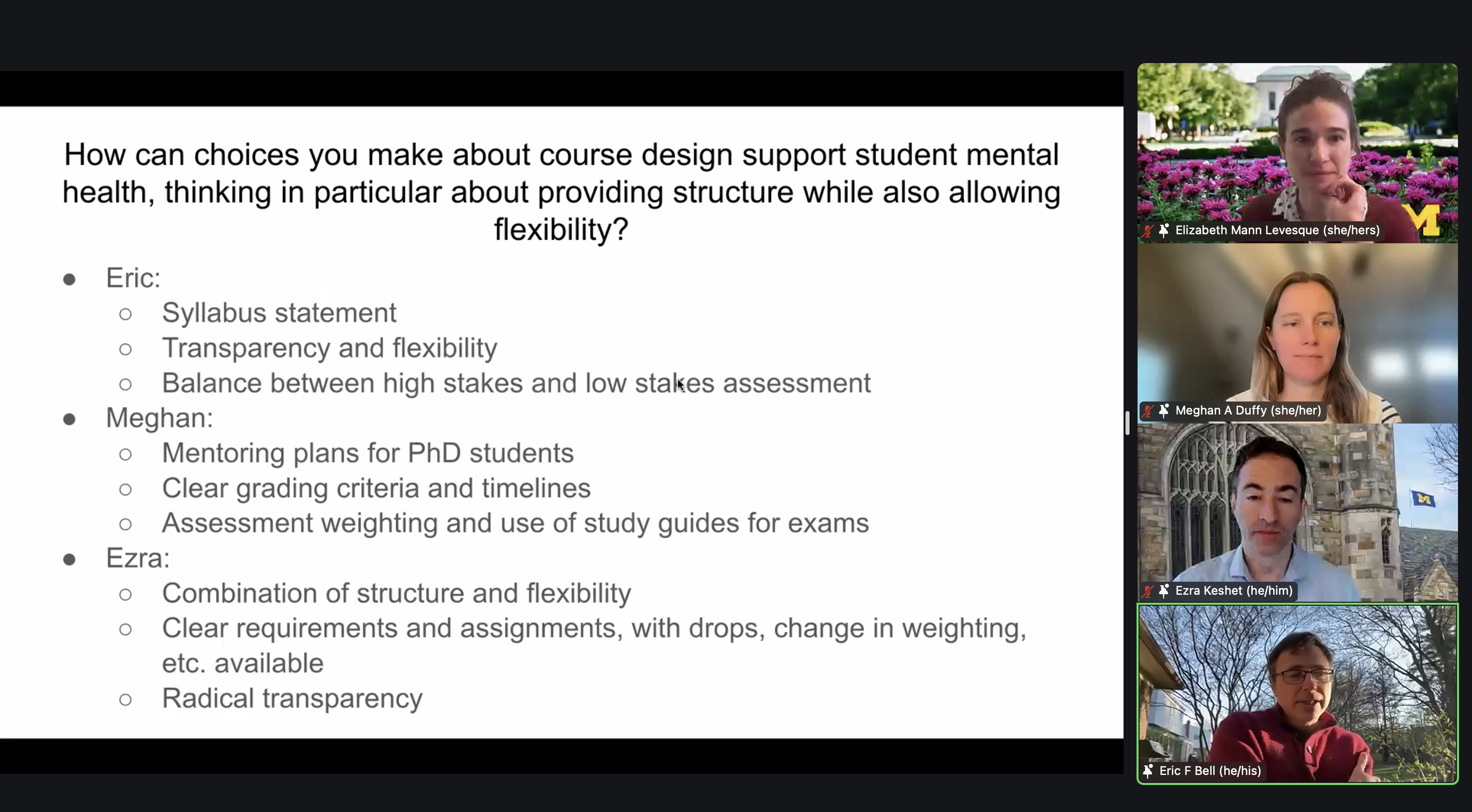
April 24 Panel Discussion Group Photo
The April 25 keynote focused on the “Possibilities and Challenges of Emerging Technology.” Assistant Professor Li Lun from PKU’s School of Economics and Senior Lecturer Pamela Bogart from the English Language Institute at Michigan shared AI applications in macroeconomic analysis and language instruction. Wu Yue, Assistant Research Scientist in Naval Architecture and Marine Engineering, and CRLT Executive Director Malinda Matney introduced U-M Maizey, a generative AI tool developed in-house, and its integration with the Canvas learning platform.
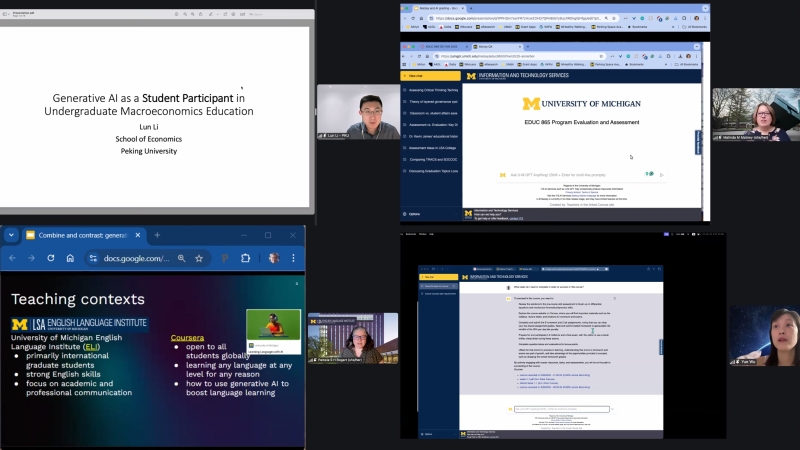
April 25 Keynote Presentations
The closing ceremony on the morning of April 26 was hosted by Matthew Kaplan. Wang Zhouyi, Deputy Director of PKU’s CETL, delivered a concluding speech. He emphasized the symposium's comprehensive exploration of two major themes: promoting student well-being and AI-enabled educational innovation. He noted that in the face of the generative AI-driven reshaping of the educational ecosystem, universities must adhere to a “student-centered” philosophy. He expressed sincere gratitude to the CRLT team and looked forward to continued collaboration between the two institutions in advancing higher education innovation.
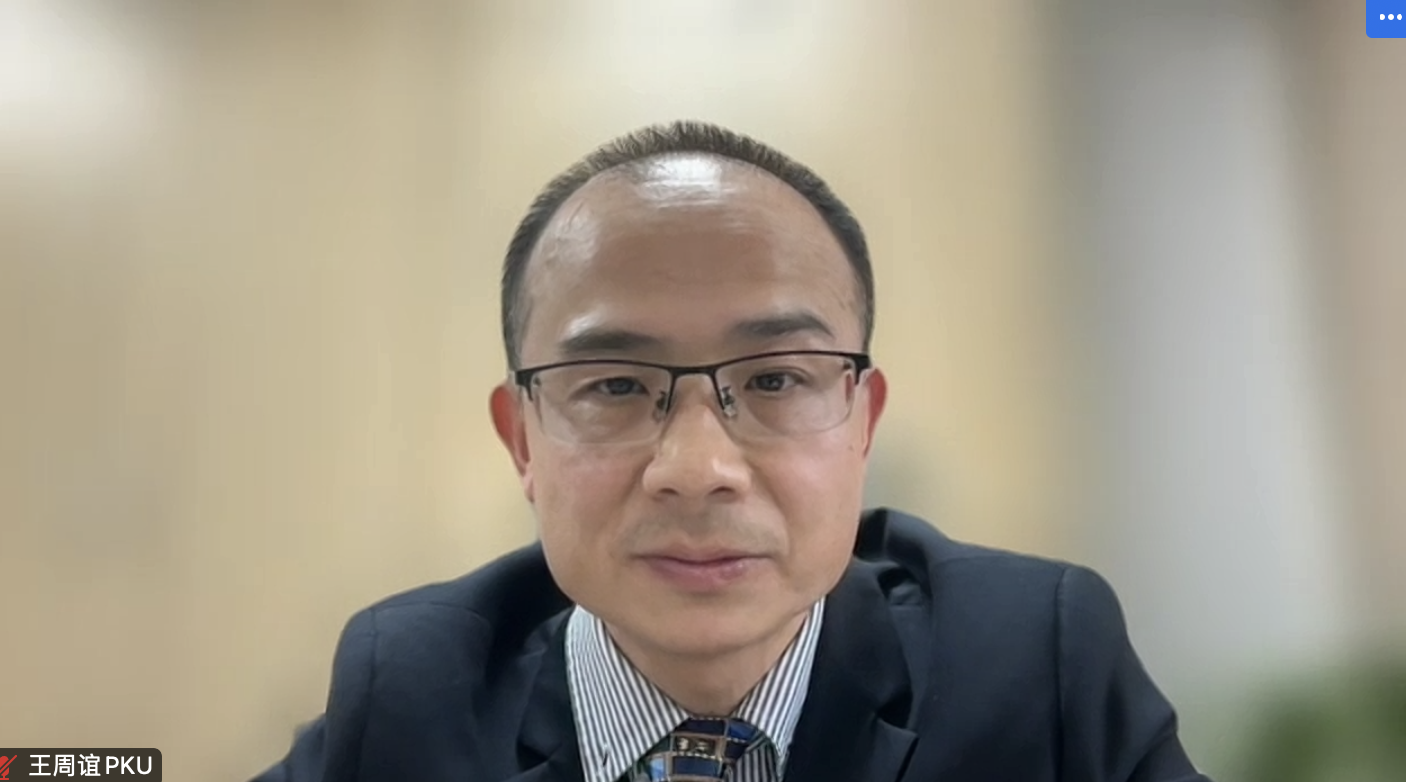
Remarks by Wang Zhouyi
Following this, three participating representatives—Assistant Professor Yan Bonan (PKU Institute for Artificial Intelligence), Attending Physician Wu Yun (PKU People’s Hospital), and Assistant Professor Zhong Dongyang (Heilongjiang University of Finance and Economics)—shared their insights. They reported gaining practical strategies for addressing student mental health and enhancing student well-being, as well as learning effective ways to apply AI tools to improve teaching quality. The symposium, they said, provided a valuable platform for exchange, and they expressed eagerness to participate in more such events to explore new pedagogical methods and technologies.

Speeches by Participating Representatives
The UM-PKU Institute for Teaching Innovation and Student Success began in 2020, expanding the two universities’ collaboration from academic exchanges and research to include teaching innovation. The symposium focuses on exploring new teaching methods, educational technologies, pedagogical reform, and paradigm shifts in research—while enhancing faculty’s digital intelligence capacity.
Peking University will continue to strengthen its partnerships with world-class universities, broaden frontline teachers’ international perspectives, promote AI literacy among faculty, and foster transformations in teaching and research paradigms for the digital intelligence era.
